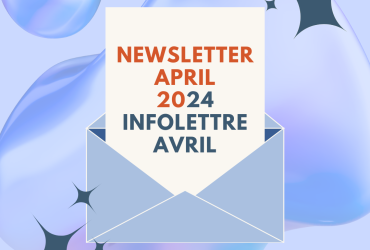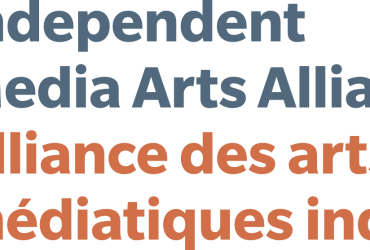
MICE Magazine – Call for Proposals
MICE Magazine
Call for Proposals
With any luck, MICE Magazine will not be what anyone expects it to be. We of MICE are not united. Some say it will be Moving Image Culture Etc. Some seek Misandry, Infamy, Calamity, Ecstasy. Yet others anticipate Monsters, Infidels, Cretins, Elegiasts. Surely there are unthought multitudes.
What we do know: MICE will pay for the fruits of your labour. MICE is at least as thoughtful as it is rowdy, and is equipped with some pointed questions (see below). MICE wants to go for a late night walk or a bowl of noodles or a double-feature and MICE will want to talk about it afterwards, or just sit quietly with you and stare at the clouds. Make us a proposal?
Issue no1: Invisible Labour
Publication date: Spring 2016
Co-edited by Gina Badger and Nasrin Himada
How can we account for all of the invisible labour that’s required for us to do our so-called radical work? For our inaugural issue, MICE seeks media arts projects (sound, video, digital art &c) and critical writing that perform and/or analyze issues of labour within media arts production. Economies of attention drive contemporary art worlds, determining who is paid, who receives credit, who is celebrated, and who remains invisible. This issue is concerned with the before, the after, the behind-the-scenes, and the off-camera. How much not-art is required to make the art? What’s the cost and who puts their life on the line?
Informed by intersectional and materialist feminisms, Issue no1 foregrounds forms of labour that go unrecognized, such as emotional, self-care and reproductive labour. Without reducing all forms of life to labour, we seek out the activities that allow us to think value differently, to acknowledge all that we do to keep ourselves and our communities vivacious and resilient. When we work on interracial creative projects that are fuelled by social justice, who takes the time to explain white supremacy and its intersections? Who cleans up the mess when shit blows up? What are the questions, complaints and critiques that we bring to the kitchen table, late at night with friends, lovers and chosen family?
In honouring these forms of labour, we also call on expanded practices of citation that can develop above and beyond staid academic models, and that acknowledge and feed our political and intellectual lineages. Such practices may at times appear to be appropriative, as in video and performance artworks that heavily borrow, remix, and recycle material; at other times, the lineage of an artwork is indicated by its title or context. How do these tactics work to honour and expand upon the efforts of our predecessors, mentors, and elders?
Some prospective research questions, which should in no way limit your own sense of possibility:
- What is Invisible Labour?
- How is media art conditioned, shaped, or formed by Invisible Labour? How is Invisible Labour formed, shaped, or conditioned by media art?
- How does the Invisible Labour of museums and other art institutions affect how the work is installed, seen, reviewed, taken down? How does it affect the process, i.e. securing artists’ visas, putting them up, feeding them dinner?
- What is the role of technology in these practices? Or, what goes on behind the scenes of the scene? i.e. the extractive and labour politics of devices and screens, the social conditions of production, cinematography editing, sound, &c.
- How do practices in media art push up against the erasure of specific labours?
- How do these practices re-imagine “work” in contemporary art settings?
- Is self-care work? Is emotional labour Invisible Labour? How do these trouble the boundaries of media art?
Issue no2: Healing Justice
Publication date: Summer or fall 2016
Edited by Radiodress in consultation with Syrus Marcus Ware
How do media-based artists bring healing modalities and disability politics into their practices? Social movements such as Black Lives Matter, Idle No More, and Slut Walks are currently articulating new spaces for the consideration of disability, gender, sexuality, and decolonization, while media artists, festivals, and exhibition spaces are taking up these questions through a wide range of embodied strategies. For its second issue, MICE Magazine will act as a curated space for media projects and writing which explore the impact of systemic violence on human bodies, both individually and collectively.
Feminist and decolonizing social movements centre the constantly changing body in their call for systemic change. Emerging from these practices, healing justice positions our bodies as perfectly imperfect, marked by our struggles and our desires, particularly for those of us directly impacted by racism, colonialisms, and marginalization of all stripes. Projects which engage healing justice invest in strategies such as community agreements, harm-reduction, allyship, intention setting, and active listening in public exhibition spaces. Rather than limiting their focus to questions of access in arts and disability contexts, healing justice projects push the boundaries of what can be done in galleries and museums; how an audience is hailed to participate; what an “expert” is and does; the impossibility of “curing”; and what technologized bodies can teach us about our collective future. Unlike the majority of relational aesthetics and social practice works, which explore various relations as a means towards understanding justice, the inclusion of healing justice modalities in cultural production invites an exploration of the medicinal properties of process, improvisation, and co-creation as they affect and effect the human body and our lived environment.
The healing justice issue will address violences such as incarceration and mass-detention, the school-to-prison pipeline, and police brutality; as well as targeted violence against Indigenous communities, trans women of colour, poor and working-class people, consumer/survivors, and migrants. Issue no2 will going deep into questions of how healing justice might form itself within an art system that often rejects community-based proposals for empowered and autonomous change.
Some prospective research questions, which should in no way limit your own sense of possibility:
- Is there a Healing Justice aesthetic? If so – what does it look/sound/feel like?
- How are social movements which mobilize Healing Justice employing media art practices?
- What, if anything, do feminist art practices have to contribute to this conversation?
- How do disability arts frameworks expand the edges of media art?
- What is the role of technology in these experimental practices?
- How are participatory ritual and ceremonial processes re-shaping relational aesthetics?
- How do these practices trouble contemporary institutional frameworks for production?
- How do they re-define authorship and reception?
- What is the conversation these works generate around spectatorship and affect?
- How do questions of cultural appropriation contribute to participation in these artworks?
- What resources and support do artists need to produce these projects?
Wanna? We thought so.
To pitch, send a nice email to editorial@micemagazine.ca with up to 250 word proposals for:
- feature essays (up to 3,000 words) that lay out your substantive critical, theoretical or historical arguments on the topics proposed
- essays (up to 2,000 words) that get into the nitty-gritty with respect to one or more media artists and their work
And/or media files (links/attachments for up to 5 minutes of sound/video and up to 5 screen-resolution images) for artworks.
We welcome propositions in two parts, should you wish to engage the themes of both issues.
The deadline for pitches to both issues is Monday 30 November 2015, at the stroke of midnight.
MICE Magazine is a print and online periodical devoted to critical writing and artists’ projects about and within moving image culture and media art. It is published twice annually in Toronto.
MICE is Parastoo Anoushahpour, Gina Badger, Jesse Cumming, Ben Donoghue, Amy Fung, Onyeka Igwe, Yaniya Lee, Scott Miller Berry
MICEmagazine.ca
@MICEmag
Articles
Call for submissions
{Re}conciliation initiative | open to First Nations, Inuit and Métis artists, collectives and arts organizations...
Lire la suite14TH ANNUAL REGENT PARK FILM FESTIVAL CALL FOR SUBMISSIONS
BACKGROUND: Every year we accept films and stories that celebrate and resonate with the inner...
Lire la suiteCatégories
- Actualités 169
- Perspectives 7




